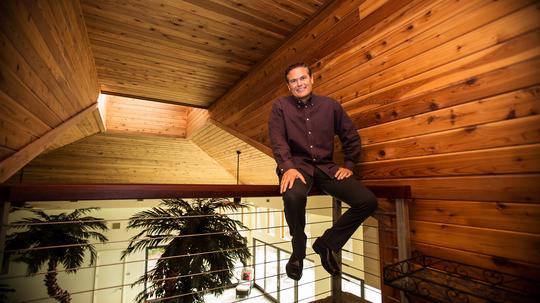
David Gardner is an angel investor and the founder of Cofounders Capital in Cary
I’ve always liked the healthcare IT space, as a startup entrepreneur myself, and, over the last decade, as a professional investor and fund manager. We’ve been the first investor in numerous Triangle healthcare IT startups like Impathiq, Feedtrail, Relay One, CareNexsis and Tesser Health, to name a few. It’s a vast and complex market with a plethora of opportunities to create cost savings and other efficiencies.
Over the last few years, however, I have observed a troubling trend in healthcare IT. The sales cycles required to get new technologies into hospital systems are becoming increasingly elongated and protracted. The trend of hospital systems merging has created mega system bureaucracies and a complex maze of approvals and decision gates that vendors must navigate in order to get even the best new products and innovation implemented.
These complex sales cycles usually require finding internal champions for your solution on the medical, administrative and financial sides of the organization simultaneously. The various decision makers involved are often looking for very different value props ranging from improved quality of care, to reduced administrative burdens, to bottom line cost savings. Failure to navigate any one of these groups effectively and your deal is dead! This is a daunting task for any technology provider, but especially for early stage companies with limited staff and resources.
One of our companies sold a hospital system last month that it had been working on for nearly two years. Unfortunately, this victory just got their product on the master approved list, i.e. a license to hunt. They now have to go to every hospital within that system and endure each one’s individual sales cycle. Even after they successfully sell one of these hospitals, there is usually a several-month wait before hospital IT can schedule the implementation.
So how is all of this killing innovation in healthcare? Most innovation comes from early stage companies, and in order for these ventures to build, survive and get their technology to market, they need venture capital. As technology investors are considering what sectors to invest in, sales cycles are a big factor. Although healthcare IT is a big industry with tons of opportunity for innovation, so are the FinTech, MarTech, InsurTech and other market sectors which all have significantly shorter and less complex sales cycles.
Initial rate of return (IRR) is the fire in which fund managers burn. We need to show the highest and quickest returns possible to our investors. The longer it takes a portfolio company to cash flow and exit, the lower that all-important IRR number becomes.
My fear is that investment dollars are going to stop flowing as readily into healthcare IT ventures in favor of other market sectors with shorter sales cycles. In the long run, this could seriously reduce the amount of innovation available to healthcare. Some hospital systems with progressive CEOs have started to form and empower innovation groups to help shepherd the most promising technology solutions through their complex buying processes but they remain the exception. For now, expanding hospital sales cycles continue to chip away at the amount of innovation available for healthcare.